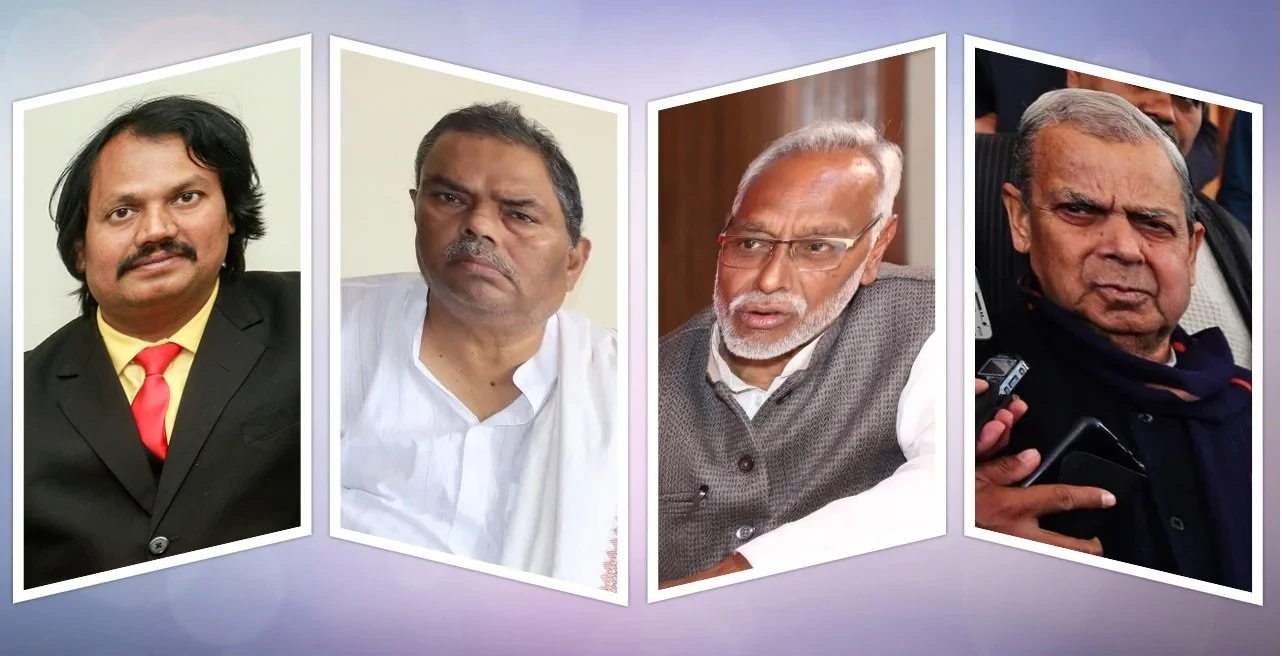Madhesh politics: A look at ministerial appointments and power shifts

Kathmandu, October 30 — Currently, most Madhesh-centric parties are in power at both the federal and provincial levels. After the Janata Samajwadi Party Nepal, led by Upendra Yadav, chose not to join the government, it has expressed support for the government led by Prime Minister KP Sharma Oli.
Apart from that, the Janamat Party, led by Dr. CK Raut, is at the helm of the Madhesh government, while the Loktantrik Samajwadi Party, led by Mahantha Thakur, the Janata Samajwadi Party led by Ashok Rai, and the Nagarik Unmukti Party, led by Resham Chaudhary, are all part of the government.
The Janata Samajwadi Party, which split from Upendra Yadav’s faction, has sent two ministers to the federal government and one minister to the Lumbini provincial government.
The Nagarik Unmukti Party, led by Resham Chaudhary, has sent one minister to the Lumbini provincial government and one state minister to the federal government. The Loktantrik Samajwadi Party, led by Mahantha Thakur, has sent one minister each to the Madhesh provincial government and the federal government.
In the House of Representatives, only the two major parties, Congress and UML, have formed a clear majority to establish a government. Nonetheless, Madhesh-centric parties have also been included in the government.
Manish Suman, an executive member and spokesperson of the Janata Samajwadi Party Nepal, commented that Madhesh-centric parties have gained a bad reputation for splitting and being willing to do anything to secure a ministerial position. He emphasized that it is evident all parties need power and government. Due to the unique nature of Madhesh politics, he stated that Madhesh-centric parties should not have to struggle for power.
There is a prevailing narrative that Madhesh-centric parties cannot remain outside of power. Suman expressed that he feels these parties have yet to institutionalize themselves.
Suman noted that even though his party supports the current government, they are not part of the power structure. He stated, “If the Janata Samajwadi Party wanted, it could have joined the government, but this time it did not succumb to greed. We supported the government on Madhesh issues. If disagreements arise, we can withdraw our support.”
He claimed that the division of his party was primarily for government purposes. He revealed that in the past, all party splits were mainly due to the quest for power, citing instances where individuals formed splits within their own party after failing to secure ministerial positions.
What ministries have Madhesh-centric parties held?
If we look back to 2008 AD, Madhes-centric parties have led most ministries in the federal government, excluding leadership roles. Three individuals from Madhesh-centric parties have served as Deputy Prime Ministers: Bijay Kumar Gachchhadar, Upendra Yadav, and Rajendra Mahato.
The Home Ministry, considered the most powerful, has also been managed by Madhesh-centric parties. They have led the Ministry of Communication three times and the Ministry of Agriculture eight times. Additionally, they have held the Supply Ministry three times, the Industry Ministry five times, the Land Management Ministry twice, and the Drinking Water Ministry four times.
Madhesh-centric parties have not shied away from holding non-departmental ministerial positions either, with Rajlal Yadav and Lakshman Lal Karn serving as non-departmental ministers.
The records show that Madhesh-centric parties have also led the Energy Ministry twice and the Forest Ministry five times. The former Ministry of Science was held by Madhesh-centric parties twice. They have led the Youth and Sports Ministry three times, the Irrigation Ministry twice, the Ministry of Federal Affairs five times, the Defense Ministry four times, and the Tourism Ministry five times. The Women and Children Ministry has also been held by Madhesh-centric parties seven times.
Currently, the Women and Children Ministry is led by Janata Samajwadi Party's Nawal Kishor Sah Sudi. Other ministries led by Madhesh-centric parties include the Physical Infrastructure Ministry seven times, the Education Ministry six times, the Health Ministry seven times, the Foreign Ministry once, and the Labor Ministry five times. Senior leader Sharat Singh Bhandari from the Loktantrik Samajwadi Party is currently the Labor Minister.
From the Madhesh-centric parties, besides Upendra Yadav of Janata Samajwadi Party, no other individual has served as Foreign Minister. Bijay Kumar Gachchhadar served as the Home Minister from the then Madheshi Jana Adhikar Forum (Loktantrik) party. Since then, no one from Madhesh-centric parties has held the Home Minister position.
How many times have leaders served as ministers?
Since 2008, over 50 leaders have served as ministers or state ministers, with some serving multiple terms while others have served just once.
The record for the most terms goes to Sharat Singh Bhandari, who has served as a minister five times since the Madhesh movement. Rajendra Mahato, Mahindra Rai Yadav, and Upendra Yadav have each served four times.
In the governments formed after the Madhesh movement, Bijay Kumar Gachchhadar has been the most frequent minister, serving six times.
Janata Samajwadi Party's Vice Chair Mrigendra Kumar Singh Yadav has served three times. Several leaders, including Pradeep Yadav, Nawal Kishor Sah, JP Gupta, Ram Bachan Ahir, Saroj Yadav, Dan Bahadur Chaudhary, Hridayesh Tripathi, Raj Kishor Yadav, Anil Jha, Chanda Chaudhary, Lakshman Lal Karna, and Renu Yadav have served twice.
There are leaders who have served once, including current Vice President Ram Sahaya Yadav, Nandan Datta, Surita Sah, Harinarayan Yadav, Om Prakash Gulzar, Bijay Yadav, and Iqbal Ahmed.
Others who have served once include Khobari Rai, Abdul Khan, Ram Chandra Kushwaha, Sarbendranath Shukla, Govinda Chaudhary, Sarita Giri, Ishwar Dayal Mishra, Sanjay Sah, Karima Begum, Kalawati Devi Paswan, Brijesh Gupta, Kashidevi Jha, Sarbadev Ojha, Arvind Sah, Shatru Singh Koiri, Ramani Ram, Ganesh Tiwari, Hemraj Tatar, Durga Devi Mahato, Rajlal Yadav, Muhammad Okil Musalman, Lakshman Mehta, Ramjanam Tiwari, Mustak Alam, Gopal Dahit, Jitendra Dev, Janakaraj Chaudhary, Sumitra Tharuni, Yashoda Lama, Dr. Surendra Yadav, and Bimal Shrivastav.
Additionally, Umashankar Argaria, Iqbal Miya, Chandrakanta Chaudhary, Abdul Khan, Anita Yadav, Ranjita Shrestha, Ashok Rai, Pramila Yadav, Arun Kumar Chaudhary, and Hasina Khan have also succeeded in becoming ministers once.










Leave Comment